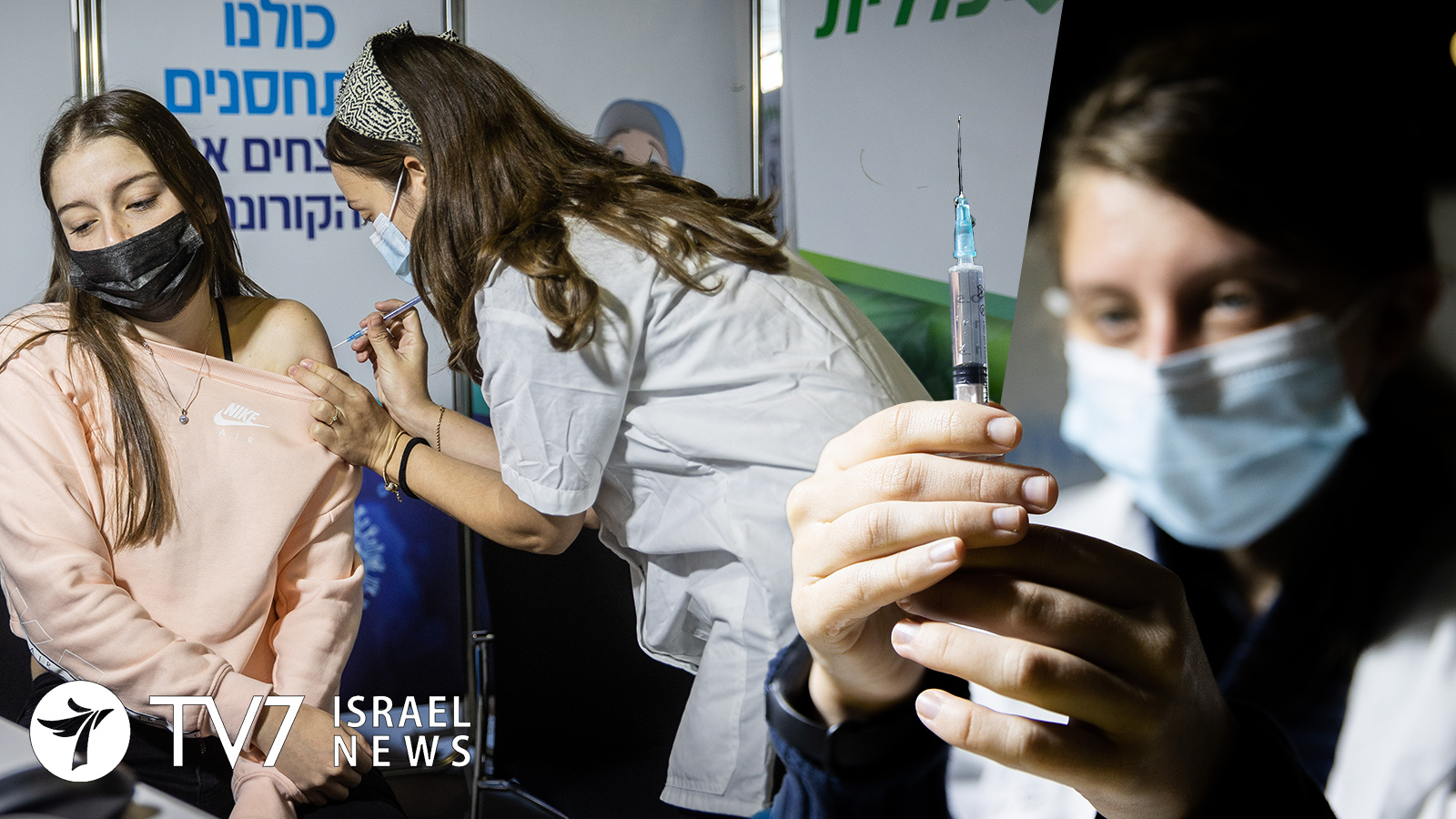The Israeli Health Ministry will begin inoculating children aged 12-16 with the COVID-19 vaccine.
The announcement follows lengthy consultations between the Coronavirus Cabinet and health experts in recent weeks.
“The committee gave the green light for vaccinating 12- to 15-year-olds, and this will be possible as of next week,” Prof. Nachman Ash, Israel’s pandemic-response coordinator, told Radio 103 FM.
The vaccination is not compulsory and the decision to do so will be left up to the parents, although Prof. Ash said that “the efficacy of the vaccine outweighs the risk.”
The US Food and Drug Administration declared in May that the Pfizer-BioNTech vaccine is safe and offers strong protection for younger teens based on testing of more than 2,000 US volunteers aged 12 to 15.
The first round of Israeli adolescents to be vaccinated will be those most at risk from the virus or planning to travel abroad.
Both the Maccabi and Clalit HMOs informed the public that they can start booking appointments today for inoculations beginning this coming Sunday.
Israel has been a world leader in its vaccination rollout.
At least 92% of those 50 and older have either been inoculated or recovered from the disease, representing around 55% of the total population of 9 million. Israel has also vaccinated Palestinian laborers who work in the country.
There are currently only 338 active cases in the country, with none reported in the last 24 hours – down from a daily peak of more than 10,000 in January.
People wishing to be tested for the virus can now do so at their HMO, since the Home Front Command closed all testing centers nationwide due to the low infection rate.
As of 1 June, Israel dropped restrictions on social distancing and the need for special Green Pass certification to enter certain restaurants and venues, although face masks are still required in closed spaces.
While the local economy has fully re-opened after three lockdowns, restrictions remain on tourism. Israel will still keep its borders closed to most incoming travel, though it has started to let in small groups of vaccinated travelers.
Even though the future looks bright, Health Minister Yuli Edelstein warned that restrictions could be re-imposed should should the situation take a turn.
Given the success of its campaign, Israel has also become an ideal environment for ‘real world studies‘ of the vaccine.
A new Health Ministry study shows that a low number of heart inflammation cases are likely linked to having been vaccinated.
According to a statement released on Tuesday, “there is a probable link between receiving the second dose (of the Pfizer) vaccine and the appearance of myocarditis among men aged 16 to 30.”
275 cases of myocarditis were reported between December 2020 and May 2021, said the Ministry. 95% of the cases were classified as mild, and the majority of the patients spent 4 days or less in the hospital.
Pfizer responded in a statement that it is aware of the Israeli observations of myocarditis; but that no causal link to its vaccine has yet been established and that the company has not observed a higher rate of the illness than is normal among the general population.
